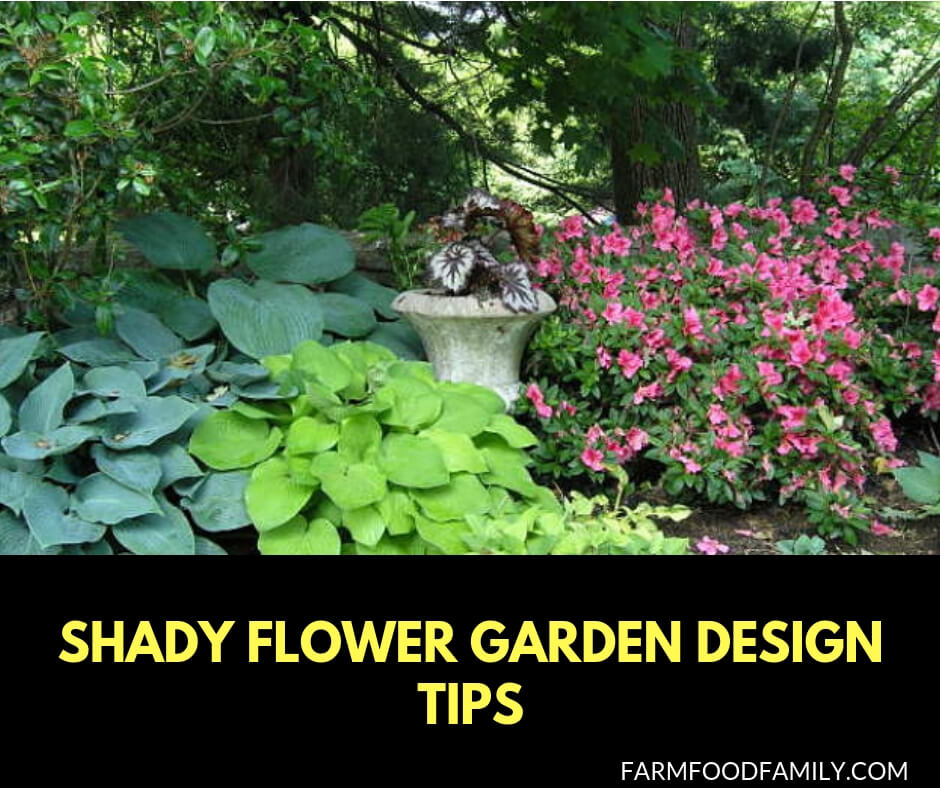(See Sun or Shade?)
This will allow you to enjoy your shade garden at its best.
So you will need a pathway to help keep your feet clean and dry.

For a wooded setting use a natural material such as bark mulch or cobbles collected on site.
For a formal setting, use brick or slate.
For an informal orcottage garden, use pebbles orstepping stones.

Add a Water Feature
The sound of water livens up a garden, especially a shade garden.
The sparkle and flash of water and its cheerful sounds bring energy and movement into the shade.
Select a pot or planter that suits the overall style or mood of your shaded garden.

These natural elements may volunteer spontaneously, or you’ve got the option to import them.
Use Plants with Interesting or Colorful Foliage
Most perennials bloom for just a short time each year.
To increase the season-long interest in your shady garden, plant perennials with attractive foliage.
Look for shade tolerant plants with different textures as well as different colors on their leaves.
For example, hostas display bold leaves, ferns have delicate looking leaves, and Liriope is grassy textured.
Include variegated plants with white, cream or gold patterns splashed on the leaves to brighten dark areas.
Before planting, improve the soil by adding organic matter such as compost and/or old rotten leaves.
Test the soil to check the pH and fertility.
(Soil Preparation for Planting Flowers.)
Use topdressings of compost as well, for the same reason.